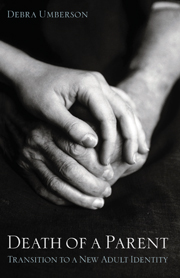Book contents
4 - TURNING POINT IN ADULTHOOD
Published online by Cambridge University Press: 30 July 2009
Summary
I'm a different person and I will continue to be a different person. People have to realize that most of us will lose our parents in our lifetimes; even though it's a common experience, it does not diminish its impact.
TINA, AGE THIRTY-FIVEI've changed a lot since she died. By going to school and making myself try real hard. By staying sober when it's the hardest thing for me to do. By losing weight. I've lost twenty-five pounds so far…. I've matured more. I don't worry as much about what people think of me.
SUSAN, AGE THIRTY-TWOMajor life events can trigger turning points in adult life. Such catalysts can provide us with opportunities to recast self-conceptions, values, and beliefs. Some of the most common predictable life events of adulthood include marriage, the birth of a child, and widowhood. Over the last hundred years, the timing and occurrence of these major events of adulthood have become much less predictable. During the same period, however, the death of a parent has become much more predictable as an event of middle adulthood. In fact, today the death of a parent is the most predictable major life event of people aged thirty-five to sixty.
The occurrence of a major life event can evoke dramatic self-reassessment and change.
- Type
- Chapter
- Information
- Death of a ParentTransition to a New Adult Identity, pp. 79 - 104Publisher: Cambridge University PressPrint publication year: 2003



